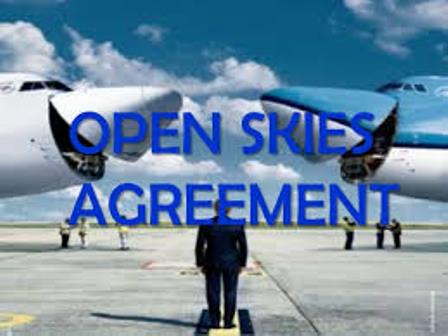The future of the Open Skies treaty after the expected withdrawal of the U.S. was discussed by the 34 treaty members at a video conference.
The vedio conference coordinated from the headquarters of the Organization for Security and Co-operation in Europe (OSCE) in Vienna on Monday.
Report says Washington accuses Moscow of infringement of the arms-control treaty, which Russia denies.
The U.S. has announced its intention to withdraw from the treaty on Nov. 22.
That would mean that, even should a new president be elected this year, he would take office in January, rendering him unable to reverse the decision.
Russia had previously not indicated how it would react to U.S. withdrawal.
The arms-control agreement, negotiated in 1992, allows participating nations, including the U.S. and Russia, to conduct unarmed observation flights over one another’s territory.
Moscow has shown itself more interested in aerial surveillance of European states than of the U.S., meaning that U.S. withdrawal would not instantly render the treaty worthless.
One sticking point for the U.S. has been the introduction by Russia of a 500-kilometre-long flight restriction over its highly armed exclave of Kaliningrad, which sits between Poland and Lithuania on the Baltic coast.
The U.S. withdrawal and its consequences are once again expected to play a central role at a five-yearly review of the treaty in October in Vienna. (dpa/NAN)














